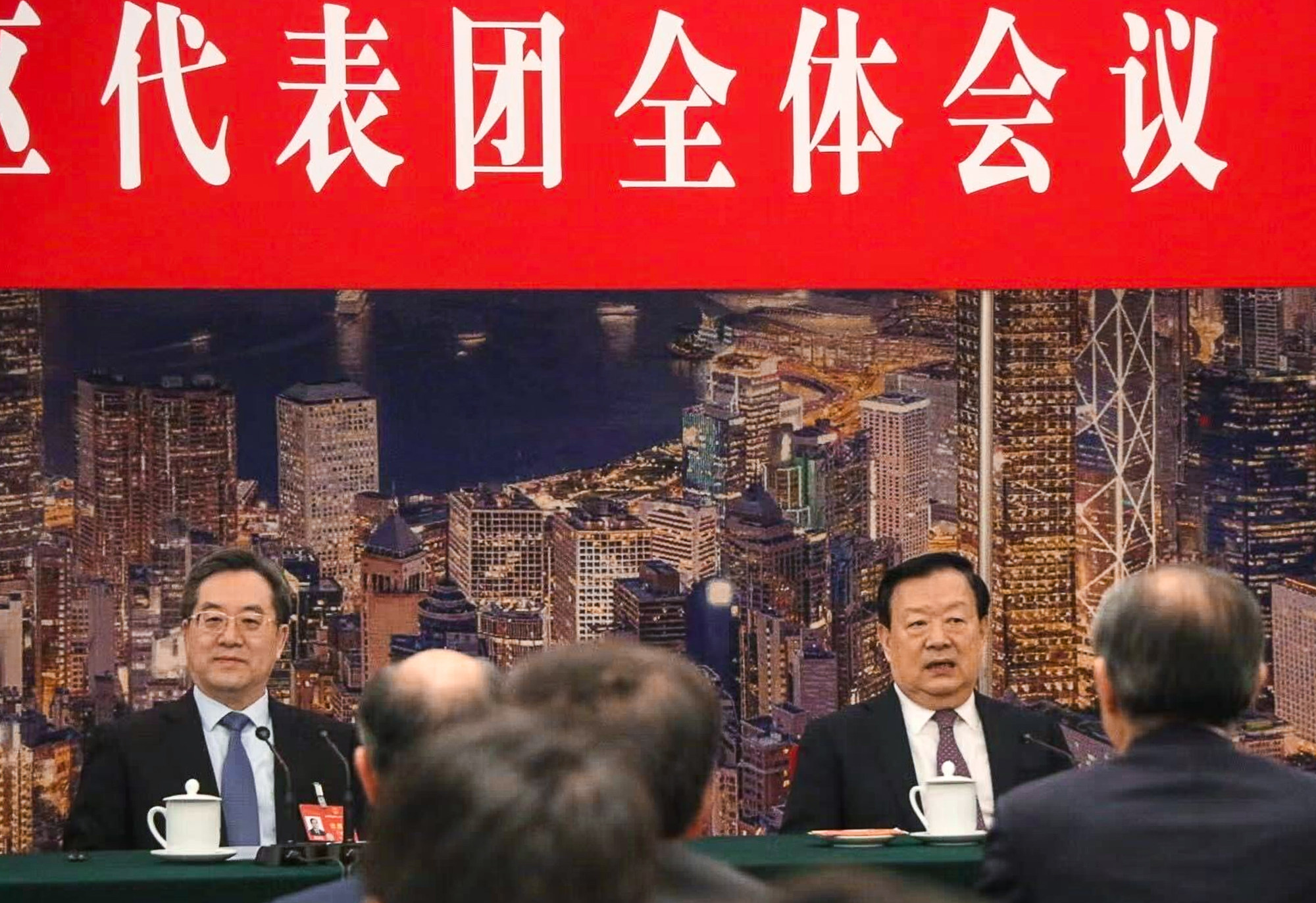
Chinese Vice-Premier Ding Xuexiang calls for swift Article 23 legislation, says it will safeguard ‘core national interests’ in Hong Kong
- Chinese vice-premier says fast-tracked approval of domestic national security law will help city shift primary focus to economic development, enhance people’s livelihoods
- He adds completing legislation as soon as possible will make city ‘safer, more open, and more resilient’
Hours after the head of the Central Leading Group on Hong Kong and Macau Affairs made the appeal, the city government announced the national security bill was endorsed by the Executive Council, a top decision-making body, on Thursday afternoon. It is set to be gazetted and introduced to the legislature for the first reading on Friday.
A government source said the latest internal target was to have the bill approved “in early April”, adding a fast-tracked process would “minimise possible manipulation of the topic”.
Ding brought up the domestic national security law, required under Article 23 of the Basic Law, the city’s mini-constitution, for a second day in a row in his exchanges with Hong Kong representatives attending the “two sessions”, or lianghui.

When meeting with National People’s Congress Hong Kong deputies in Beijing on Thursday morning, Ding said completing the legislation as soon as possible would make the city “safer, more open, and more resilient” and shift its primary focus onto economic development and livelihood improvements, according to delegate Chan Yung.
“[Ding said] Article 23 legislation safeguards the core national interests and safeguards Hong Kong’s long-term stability and long-term development,” Chan, who is also a lawmaker in the city, told reporters after the meeting.
“It is necessary to step up efforts to dispel concerns among Hong Kong society, and resolutely refute fallacies, allowing the local legislation to be completed successfully.”
Ding, the sixth-ranked member of the Politburo Standing Committee of the Chinese Communist Party, leads the top decision-making institution on Hong Kong affairs and directly reports to the ruling party.
Hong Kong leader vows to enact domestic security law ‘as soon as possible’
The vice-premier also told Hong Kong to maintain its open economy and common law system to enhance its international influence through deepening collaborations.
During the two sessions, some Hong Kong delegates, who are also lawmakers or executive councillors, were told to fly back to the city for relevant meetings after the legislation schedule was brought forward.
The Article 23 legislation, sitting alongside the Beijing-imposed national security law, will target five new types of offences – treason, insurrection, sabotage, external interference, and theft of state secrets and espionage.
Some foreign countries have raised concerns over the coming law, including claims from Washington’s top envoy in Hong Kong who said some US companies had to use burner phones and laptops when visiting the city due to connectivity issues and data security concerns.

After meeting the vice-premier on Thursday, a group of NPC delegates was asked by reporters to address concerns over vague definitions of “state secrets” and “foreign forces” which were key concepts of the bill. Deputy Ma Fung-kwok said: “I prefer to discuss this over a separate interview to avoid wasting time now.”
Deputy and Basic Law Committee member Priscilla Leung Mei-fun, who was among the lawmakers who rushed back to Hong Kong for a Wednesday meeting, said these were part of the fundamental questions that were already addressed in the legislature.
“I believe the bills committee will examine all these concepts in great detail … You can wait for a bit,” she said.
Chinese premier urges Hong Kong to ‘play to its strengths’ under bay area plan
She also pointed to Ding’s mention of the common law several times at the meeting. She said Ding expressed hopes for the city to safeguard its status as a financial hub with the use of the common law and the coming national security legislation.
The meeting was also attended by Hong Kong and Macau Affairs Office director Xia Baolong and his deputy Zhou Ji.
This was followed by a separate session in the afternoon, where Zheng Yanxiong, director of Beijing’s liaison office in Hong Kong, called on the city’s NPC deputies to support Lee’s administration in improving governance and resolving livelihood issues.


